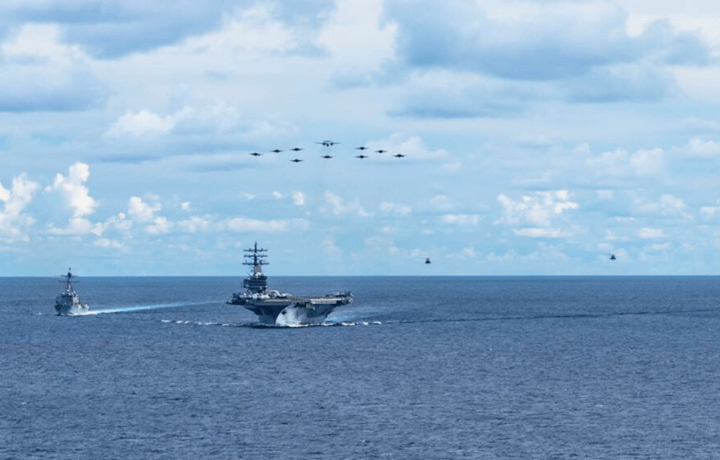Shortly after the Philippine Coast Guard claimed two ships had been bumped by Chinese vessels in separate incidents over the weekend, Manila summoned Beijing ambassadors. Accusing China of engaging in illegal behavior in the hotly disputed South China Sea, the Philippine government is trying to make full use of the diplomatic process.
On Sunday, the latest in a series of maritime confrontations between the two countries in the South China Sea was playing out. The Philippine government accused China of “dangerous blocking maneuvers” thereby causing a collision with a Philippine resupply boat. Manila added the “provocative, irresponsible, and illegal actions” of the Chinese ship had “imperiled the safety” of the Philippine sailors and the vessel.
In a separate incident on Sunday, a Philippine Coast Guard vessel escorting a routine resupply mission was bumped by what the Philippine task force described as a Chinese maritime militia vessel. In turn, China accused the Philippines of deliberately stirring up trouble by reversing into a Chinese fishing vessel. The scale of the damage is still being assessed according to the Philippine Coast Guard, but no injuries were reported.
EU and Canada Respond
The European Union (EU) and Canada quickly condemned both Chinese actions on Sunday, with the EU stating the incidents were “repetitive” and “dangerous.” The Canadian embassy asserted China’s actions were “unjustified” and that “Continuing acts of intimidation and coercion undermine safety, stability, and security across the region, and increase the risk of miscalculation.”
Both incidents were not far from the Second Thomas Shoal, which lies within the Philippines’ 200-mile exclusive economic zone, more than 1,000km from China. This area has long been a flashpoint, as the Philippines claim the waters and have developed military outposts. A dilapidated WWII transport ship, the Sierra Madre was deliberately run aground in 1999 by the Philippines on a tiny reef within the zone. The ship is home to a small and persistent contingent of troops, staking the country’s claim in the highly disputed water. The Philippines repeatedly accuse China of trying to block resupply missions to the ship.
Chinese Assertions
China claims almost all the South China Sea, even though a United Nations (UN) tribunal has found the claim to be without legal basis. The waters are one of the world’s busiest trading routes, with the Philippines and its neighbors having overlapping claims to the South China Sea. In addition to the open waterways dispute with China, the area contains significant reserves of oil and natural gas.
After a water cannon incident at the same location in August of this year, China’s embassy in Manila stated, “I would like to stress that the South China Sea is not a hunting ground for countries outside the region to meddle with, sow discord and provoke conflicts.” The Chinese foreign ministry has accused the U.S. of threatening China by establishing the mutual defense treaty, stating “The US has been brazenly bolstering the Philippines as it infringes upon China’s sovereignty, but those moves will not succeed.”
The U.S. has long considered the South China Sea crucial to national interests, establishing a Philippine mutual defense treaty in 2014. In addition to maritime support and humanitarian aid, the agreement allows US forces use of Philippine designated areas and facilities.
The U.S. Reaction
In response to Sunday’s collisions, the U.S. state department accused China of “dangerous and unlawful actions” reaffirming the mutual defense treaty with Manila “extends to armed attacks on Philippine armed forces, public vessels, and aircraft – including those of its Coast Guard – anywhere in the South China Sea.”
After August’s incident, U.S. Secretary of Defense, Lloyd Austin reaffirmed the treaty between the two countries, underlining the “ironclad nature of the US-Philippines alliance.” At that time, he stated the U.S. would defend the Philippines if its public vessels and forces were subjected to an armed attack, extending to those of the Chinese coastguard. The Philippines have repeatedly accused China of aggressive and dangerous behavior in the South China Sea.
Should such incidents continue to escalate, with the mutual defense treaty intact, the U.S. could be brought into confrontation with China.




